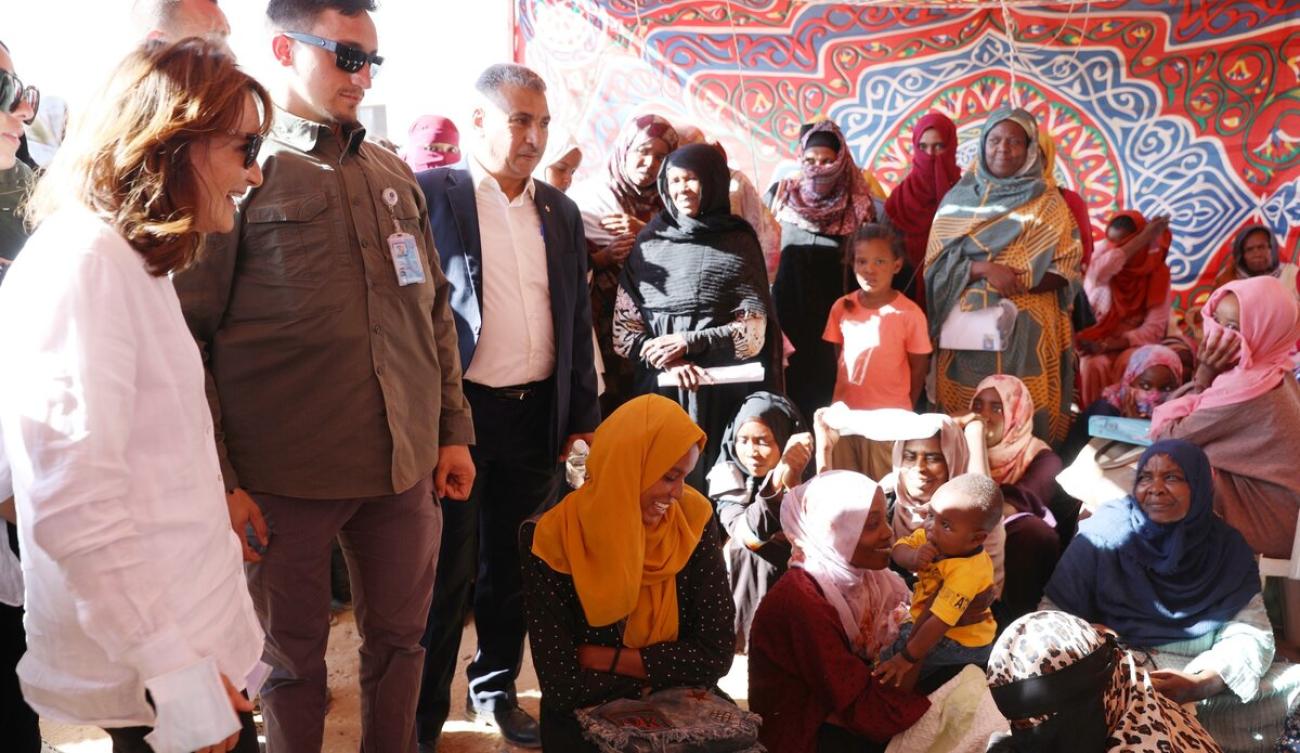TRIPOLI - 21 July – Deputy Special Representative of the Secretary General and Resident Humanitarian Coordinator, Georgette Gagnon, led a mission to Kufra on 18 July with the heads of five UN agencies to see the situation of Sudanese refugees and host communities, and guide the UN’s scaled up humanitarian response and action.
Since war broke out in Sudan in April 2023, over 1.8 million refugees, according to UNHCR, have been forced to flee to neighboring countries including to Libya, particularly to Kufra in southeastern Libya which hosts thousands of refugees from Sudan.
“Local authorities and host communities in Kufra and other cities in Libya have been actively assisting Sudanese refugees since the conflict,” said Gagnon. “More support, access and coordination are urgently needed to meet the increasing humanitarian and protection needs.”
She added that local services are overstretched, with many refugee families in need of adequate shelter and medical facilities unable to meet healthcare and nutrition needs including of children arriving in Libya with malnutrition. More support to local infrastructure is also needed to ensure continued basic services for communities hosting refugees.
In Kufra, the UN team met with doctors and patients at a medical facility supporting refugees with assistance from UN agencies including medical equipment, medicines, generators and health care professionals. Mobile health clinics are providing primary healthcare services, vaccinating nearly 20,000 children and supporting over 14,000 refugees with basic healthcare. Other humanitarian assistance includes hygiene kits, core relief items, water tanks and protection services for women and children. Sudanese refugees expressed their appreciation for the support provided by local authorities and stressed the urgent critical need for increased assistance.
In support of official and community efforts, the UN in Libya launched the Response Plan for Sudanese Refugees in Libya (RPSL) for 2024 to provide support and ensure responsibility sharing with the State of Libya, local authorities and the Libyan population in managing ongoing challenges with USD 48.6 million requested from donors. UNHCR, the refugee agency, is coordinating the refugee response and upscaling and deploying emergency teams to coordinate the response among all partners. Funds are needed to strengthen official efforts to deliver critical assistance for health, nutrition, protection, shelter, water and sanitation, education, and registration and identification services that permit refugees to safely and voluntarily move from Kufra to other areas.
“In coordination and cooperation with local authorities, refugees and humanitarian partners, the UN in Libya is committed to providing more support to Sudanese refugees and host communities,” said Gagnon.


